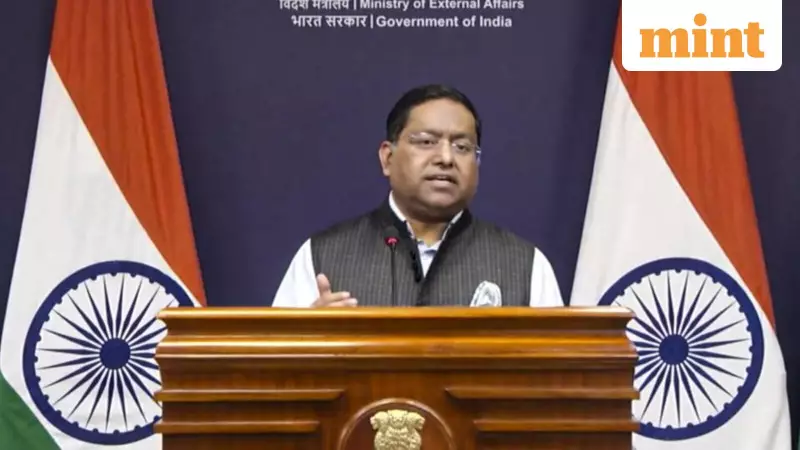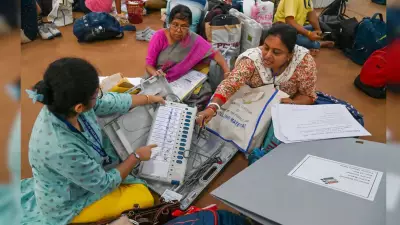
The Ministry of External Affairs has strongly condemned Pakistan for making unfounded allegations suggesting Indian involvement in the recent suicide bombing outside a court in Islamabad that claimed 12 lives. MEA spokesperson Randhir Jaiswal issued a sharp rebuttal to Pakistan's interior minister Mohsin Naqvi, who had claimed without evidence that the attack was orchestrated by "Indian-backed elements."
India's Forceful Rejection
In an official statement, Jaiswal described the Pakistani leadership as "obviously delirious" and completely rejected what he termed as "baseless and unfounded allegations." The MEA spokesperson characterized this as a predictable tactic by Pakistan to create false narratives against India to divert attention from its own internal political crisis.
Jaiswal emphasized that "the international community is well aware of the reality and will not be misled by Pakistan's desperate diversionary ploys." This strong wording reflects India's frustration with what it sees as Pakistan's repeated attempts to blame India for its internal security failures.
The Islamabad Court Attack Details
The tragic incident occurred when an attacker attempted to enter the court premises but, failing to do so, targeted a police vehicle instead. According to Pakistani authorities, the explosion was confirmed as a suicide attack after police discovered a severed head nearby that they said belonged to the attacker.
CCTV footage from the site later showed the attacker, providing visual evidence of the assault. The attack resulted in 12 confirmed fatalities, marking another serious security breach in the Pakistani capital.
Conflicting Claims and Regional Tensions
Initially, a breakaway faction of the Pakistani Taliban known as Jamaat-ul-Ahrar claimed responsibility for the attack. However, in a surprising twist, Sarbakaf Mohmand, a commander from the group, later sent WhatsApp messages insisting they had not made any such claim.
Pakistan's Defense Minister Khawaja Mohammad Asif escalated tensions by stating on social media platform X that the country is "in a state of war" and directly blamed the Taliban government in Afghanistan. Islamabad has repeatedly accused Kabul of sheltering the Tehrik-e-Taliban Pakistan (TTP), which both Pakistan and the United Nations have designated as a terrorist organization.
Asif warned that "Pakistan has the strength to respond fully" to what he described as Afghanistan's failure to act against terrorism targeting Pakistan. This comes amid ongoing border tensions between the two neighbors, though a ceasefire has been in place since October 19 following earlier accusations by Kabul that Islamabad was responsible for attacks on October 9.
The situation remains volatile, with India maintaining its position that Pakistan's allegations are nothing more than an attempt to distract from its internal military-inspired constitutional subversion and power struggles.





